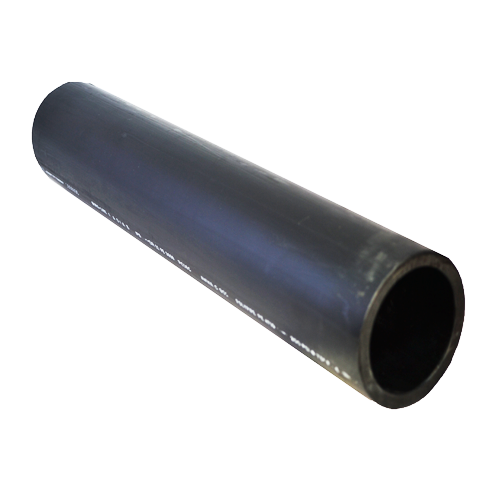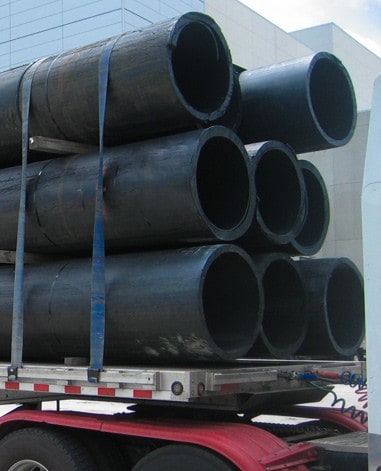The Innovation of American Plastics HDPE Pipe Manufacturing: What You Need to Know
Wiki Article
Recognizing the Key Advantages of HDPE Pipe for Water and Wastewater Management
Making use of HDPE pipe in water and wastewater administration provides many benefits that merit factor to consider. Its extraordinary resilience and lengthy life-span make it a preferred selection for many jobs. In addition, the material's resistance to corrosion and chemical damage enhances its reliability in different settings. Nonetheless, the benefits prolong past just longevity and resistance. Exploring its cost-effectiveness and environmental impact reveals much more compelling reasons for its extensive fostering in contemporary facilitiesRemarkable Sturdiness and Long Life

HDPE pipeline sticks out for its exceptional toughness and durability, making it a recommended option in water administration systems. Constructed from high-density polyethylene, these pipelines can hold up against significant stress and tension, ensuring trusted efficiency in time. Their robust nature enables them to endure extreme environmental conditions, including temperature level variations and dirt movements, which can create other products to fall short.
The life expectancy of HDPE pipelines frequently goes beyond half a century, providing an affordable remedy for municipalities and industries alike. Additionally, the material's light-weight residential or commercial properties simplify installation, decreasing labor costs and timeframes. This resilience decreases the requirement for constant repair services or replacements, even more improving its financial charm.
In water management applications, the integrity of HDPE pipes indicates fewer disruptions and boosted solution connection, making them integral to lasting facilities growth. The combination of durability and longevity strengthens HDPE's role as a cornerstone in efficient water monitoring remedies.

Resistance to Corrosion and Chemical Damage
While many materials catch corrosion and chemical damages with time, HDPE pipelines display amazing resistance, making them optimal for different water management applications. This strength originates from the molecular structure of high-density polyethylene, which is naturally non-reactive and does not wear away like metals or deteriorate from exposure to rough chemicals. Because of this, HDPE is very efficient in atmospheres with aggressive compounds, such as wastewater systems that might have acids, bases, and organic solvents.
In addition, HDPE pipes can endure ecological elements such as soil acidity and saline problems, further boosting their viability for varied applications (hdpe pipe in stock Midland TX). Their ability to keep structural integrity over time minimizes the danger of leakages and failings, which is crucial in guaranteeing the safety and dependability of water circulation and wastewater management systems. The resistance to rust and chemical damages considerably contributes to the overall efficiency and durability of HDPE piping solutions.
Cost-Effectiveness and Economic Benefits
When taking into consideration the monetary effects of water monitoring systems, the cost-effectiveness of HDPE pipelines becomes apparent. These pipes offer reduced installation and maintenance costs compared to traditional materials like metal or concrete. Their light-weight nature simplifies transportation and installation, causing reduced labor expenses. Furthermore, HDPE pipelines show a lengthy lifespan, typically exceeding 50 years, which equates to less replacements and lasting savings.Moreover, the resistance of HDPE to corrosion and chemical damage reduces the demand for pricey fixings and substitutes. The pipes additionally support effective water flow, decreasing power expenses related to pumping systems. By alleviating leaks and water loss, HDPE pipes add to considerable financial advantages for communities and industries alike. Overall, the preliminary financial investment in HDPE piping can yield substantial monetary returns over the lifespan of the water administration system, making it a sensible selection for lasting facilities growth.
Ecological Sustainability and Decreased Influence

Convenience and Flexibility in Setup
Since of their unique residential or commercial properties, HDPE pipelines offer impressive convenience and versatility in installment, making copper plumbing fittings them ideal for a variety of applications. Their lightweight nature enables simpler handling and transportation, lowering labor costs and setup time. HDPE pipelines can be bent and shaped to fit different surfaces and project demands, which is especially helpful in testing atmospheres.Furthermore, their resistance to corrosion and chemical damage permits installment in varied settings without the demand for specialized protective coatings. The capability to fuse joints produces a constant, leak-free system, boosting the total honesty and integrity of the installation. HDPE's flexibility likewise fits ground motion, lowering the threat of damages in areas prone to changing dirt. In general, these qualities make HDPE pipes not just flexible yet likewise a recommended selection for water and wastewater administration systems.
Regularly Asked Inquiries
Exactly How Does HDPE Pipe Compare to PVC in Water Management Applications?
HDPE pipe offers exceptional flexibility, resistance to rust, and longevity compared to PVC. Its lighter weight promotes simpler installation, while its long lifespan reduces substitute costs, making HDPE a favored option in water administration applications.What Is the Lifespan of HDPE Water Lines Under Typical Problems?
Under typical problems, HDPE pipes can have a lifespan ranging from 50 to 100 years. Their sturdiness and resistance to corrosion contribute to their long-term performance in various applications, making them a reputable option for infrastructure.Are HDPE Piping Recyclable After Their Solution Life?
Yes, HDPE pipes are recyclable after their life span. Midland TX HDPE Pipe Fittings in Stock. They can be processed and repurposed right into new items, greatly decreasing environmental effect and promoting sustainability within the helpful site sector, making them a green choice for piping remediesWhat Is the Setup Refine for HDPE Pipes?
The setup procedure for HDPE pipelines involves site preparation, trenching, pipe blend or mechanical signing up with, backfilling, and stress screening. Correct techniques ensure a durable and effective system for transporting water and wastewater properly.Can HDPE Water Lines Be Utilized for Both Potable and Non-Potable Water Systems?
Yes, HDPE pipelines can be made use of for both safe and clean and non-potable water supply. Their versatility, sturdiness, and resistance to rust make them ideal for different applications, making certain risk-free and efficient transportation of water in various contexts.Report this wiki page